Year 3 - Marigolds
PE Day:
Tuesday
Class Teachers: Miss Whiffin
Important Information
Welcome to Year 3!
This is an exciting and important year as we continue to build on the foundations from Key Stage 1 and take on new challenges. Our focus will be on developing confidence, fostering independence, and deepening understanding across all subjects. Year 3 is a key time to strengthen essential skills and prepare for the expectations of lower Key Stage 2.
Throughout the week, we will use Times Tables Rock Stars to practise and track our fluency with times tables. In Year 3, children will begin to learn their times tables in greater depth, aiming to become confident and accurate with the 2, 3, 4, 5, 8, and 10 times tables. This knowledge will provide a strong foundation for future learning in maths.
Each week, children will be given a spelling task and are expected to complete 30 minutes of practice on Times Tables Rock Stars. The Year 3/4 Statutory Word List can be found in the documents on this page. These are the spellings we aim for children to know by the end of Year 4.
Reading at home daily will help develop and improve pace, fluency and understanding. Please listen to your child read at least 3 times a week and then record in their reading record.
Suitable PE kit must be worn: a black or white t-shirt with the Stanground St John's Logo or a plain black t-shirt, and black shorts/ sports trousers.
Tapestry: This will continue to be used as a primary means of communication. This needs to be checked on a daily basis to ensure you are up-to-date with key information. This is also your route for sending any messages directly to the class teacher. Evidence of learning will continue to be posted, along with suggestions of ways you could continue to support your child at home.
What will my child do in Year 3?
1. Increase focus on spelling
In English, your child will continue to work on the spelling patterns they have begun in previous years, but this year there is less of a focus on phonics and more emphasis on understanding and learning the spelling rules, as well as attention to prefixes and suffixes.
2. Develop writing skills
In writing, schools focus on creativity and writing styles; looking at settings, language style, and character within their writing. Your child will also study different genres of writing such as poetry and play scripts.
3. Maths
Maths in Year 3 has more of a times tables focus. Quick recall of the required 3, 4, 8, and 50 times-tables (as well as the 2, 5, and 10 times-tables they’ve already learned in Year 1 and 2) is important as they form the foundation for a large majority of the work the children will cover within the year.
You will probably notice your child beginning to use column addition and subtraction of three-digit numbers this year, as well as learning about multiplication and division, and using — and applying — their times tables knowledge.
They will also cover fractions of quantities, equivalent fractions, angles, parallel and perpendicular lines, area, perimeter, and shape.
4. Maths mastery
The national curriculum ‘mastery’ style of teaching concentrates on breadth of knowledge, and children will be encouraged to use their understanding of the new concepts to solve challenges to deepen their understanding.
5. Science
Science in Year 3 is engaging and fun. Your child will learn about life processes, rocks, light, forces and magnets, and animals (including humans). How to work scientifically and write up their investigations in a more formal way — using predictions, methods, results and conclusions — is also a key part of this year’s science curriculum.
How can I help my child in Year 3?
1. Practise weekly spellings
You can support your child at home by helping them to learn their all-important weekly spellings — these are usually tested once a week on a Tuesday.
2. Continue reading
Reading is key this year and there are plenty of ways you can help. It is still important to listen to your child read regularly. Ask questions about what they’re reading. This will encourage your child to think deeply about their reading, whether they’re reading aloud or independently.
Reading to your child is still important at this age too. Listening to your intonation helps children with their own expression, and also enhances their writing. A fun way to encourage expression is to use silly voices – and even to make the occasional deliberate mistake. Allowing your child to correct you helps them to see why certain punctuation changes the way we read aloud.
You can extend this to their own writing: encourage them to read their writing back to themselves and make punctuation choices based on their expression.
3. Diversify
Give your child access to as many different styles of writing as you can. This will assist with their reading fluency and expand their vocabulary and knowledge.
4. Practise maths
In maths, you can support your child at home by practising the relevant times-tables (3, 4, and 8 times-tables – as well as the 2, 5, and 10 times-tables) regularly.
You might like to help them learn to tell the time. Or, give them the opportunity to use money in real life contexts. Asking them questions such as how much change you need when shopping will help them with their reasoning skills in and out of class.
